Natural Gas Extraction Industry in the United States
The natural gas extraction industry in the United States involves the production and distribution of natural gas, which is primarily composed of methane. The industry has seen significant growth in recent years due to advances in technology, such as hydraulic fracturing (fracking), which has made it possible to extract natural gas from previously unreachable reserves.
The United States is now one of the largest producers of natural gas in the world, and the industry has had a significant impact on the US economy, creating jobs and contributing to energy independence.
However, the extraction of natural gas also raises concerns about its potential impact on the environment, including air and water pollution and the release of methane, a potent greenhouse gas, into the atmosphere.
In recent years, there has been increased focus on developing cleaner sources of energy and reducing dependence on fossil fuels, which may impact the future of the natural gas extraction industry in the United States.
Typical Work in the Natural Gas Extraction Industry by company size
Large Corporation
- Exploration and drilling for natural gas in multiple locations
- Construction and operation of pipelines for natural gas transportation
- Processing of natural gas to remove impurities and prepare it for distribution
- Marketing and sale of natural gas to customers, such as power plants and industrial facilities
- Development of new technologies and processes to improve natural gas extraction and production
Mid-Size Company
- Specialized drilling services for natural gas extraction
- Transportation and distribution of natural gas through pipelines
- Construction and maintenance of natural gas processing plants
- Provision of support services, such as equipment rental, to companies operating in the natural gas extraction industry
- Development of new technologies and processes to improve the efficiency and sustainability of natural gas extraction and production
Small Business
- Provision of drilling services to larger corporations and mid-size companies in the natural gas extraction industry
- Maintenance and repair of equipment used in natural gas extraction and production
- Supply of specialized components, such as valves and fittings, for natural gas pipelines
- Provision of technical consulting services to companies operating in the natural gas extraction industry
- Fabrication and installation of specialized equipment, such as pressure vessels, for natural gas processing plants
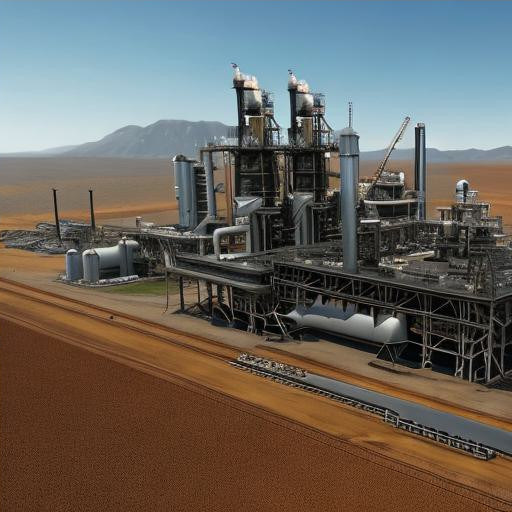
Commercial Insurance for Corporations in the Natural Gas Extraction Industry
As a corporation in the natural gas extraction industry, it is important to have comprehensive commercial insurance coverage to protect against potential risks and liabilities associated with the industry. The specific insurance policies required will depend on the size and scope of the company's operations, as well as the specific risks associated with natural gas extraction and production.
Examples of commercial insurance coverage that a corporation in this industry may consider purchasing include:
- General Liability Insurance: Protects against third-party claims for property damage and personal injury
- Property Insurance: Covers the company's buildings, equipment, and inventory in the event of damage or loss
- Environmental Liability Insurance: Protects against environmental hazards and claims arising from natural gas extraction and production activities
- Cyber Liability Insurance: Protects against loss or theft of sensitive information, including customer and employee data
- Workers' Compensation Insurance: Covers medical expenses and lost wages for employees who are injured on the job
- Professional Liability Insurance: Protects against claims arising from errors or omissions in the company's services
- Directors and Officers Liability Insurance: Protects against claims against the company's directors and officers for wrongful acts in the performance of their duties
- Product Liability Insurance: Protects against claims arising from the sale or distribution of the company's products
It is recommended to consult with a commercial insurance agent or broker to determine the specific insurance coverage needed for your company's operations and potential risks.
General Liability Insurance
A corporation in the natural gas extraction industry might have general liability insurance to protect against third-party claims for property damage and personal injury. Here is an example scenario where this type of insurance can help:
- During the extraction process, a pipe burst and caused damage to a nearby building. The owner of the building files a lawsuit against the natural gas extraction company for the cost of repairs. The company's general liability insurance will provide coverage for the cost of defending the lawsuit and any settlement or judgment that may result from it, up to the policy's limit.
This example illustrates the importance of having general liability insurance to protect against unexpected events and financial losses associated with third-party claims. Without this coverage, the natural gas extraction company would be responsible for paying these costs out of pocket, which could result in significant financial burden and harm to the company's reputation.
Property Insurance
A corporation in the natural gas extraction industry might have property insurance to cover their buildings, equipment, and inventory in the event of damage or loss. Here is an example scenario where this type of insurance can help:
- A severe storm caused significant damage to the natural gas extraction company's drilling equipment and facilities. The company's property insurance will provide coverage for the cost of repairing or replacing the damaged equipment and facilities, up to the policy's limit.
This example highlights the importance of having property insurance to protect against unexpected events and financial losses associated with damage to the company's assets. Without this coverage, the natural gas extraction company would be responsible for paying these costs out of pocket, which could result in significant financial burden and harm to the company's operations and growth.
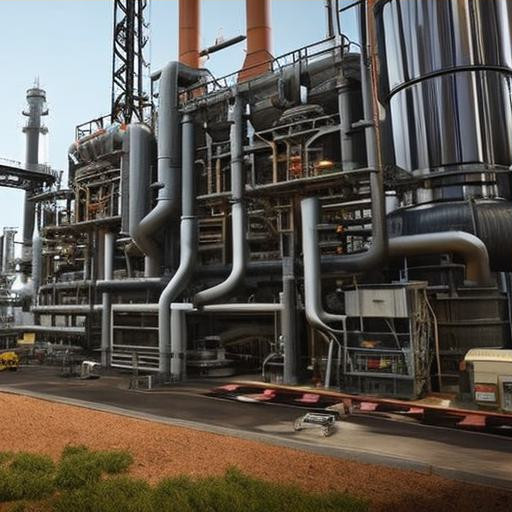 Environmental Liability Insurance
Environmental Liability Insurance
A corporation in the natural gas extraction industry might have environmental liability insurance to protect against potential claims for environmental harm caused by their operations. Here are a few examples of how this type of insurance can help:
-
A leak from a storage tank contaminated the nearby water supply. The company is sued by the local residents for the cost of clean-up and the loss of use of their water supply. The company's environmental liability insurance will provide coverage for the cost of defending the lawsuit and any settlement or judgment that may result from it, up to the policy's limit.
-
The natural gas extraction company's drilling operations caused a minor earthquake that damaged nearby buildings. The owners of the damaged buildings file a lawsuit against the company for the cost of repairs. The company's environmental liability insurance will provide coverage for the cost of defending the lawsuit and any settlement or judgment that may result from it, up to the policy's limit.
-
A third-party contractor working on behalf of the natural gas extraction company caused environmental damage while transporting waste materials. The company is sued by the state for the cost of clean-up and fines. The company's environmental liability insurance will provide coverage for the cost of defending the lawsuit and any settlement or judgment that may result from it, up to the policy's limit.
These examples demonstrate the importance of having environmental liability insurance to protect against unexpected events and financial losses associated with environmental claims. Without this coverage, the natural gas extraction company would be responsible for paying these costs out of pocket, which could result in significant financial burden and harm to the company's reputation and sustainability.
Cyber Liability Insurance
A corporation in the natural gas extraction industry might have cyber liability insurance to protect against potential losses from cyber threats such as data breaches, hacking, or cyber extortion. Here are a few examples of how this type of insurance can help:
-
The natural gas extraction company's data systems were hacked and sensitive information, such as customer and employee data, was stolen. The company is sued by its customers and employees for the cost of credit monitoring services and for the harm caused to their reputation. The company's cyber liability insurance will provide coverage for the cost of defending the lawsuits and any settlement or judgment that may result from them, up to the policy's limit.
-
The natural gas extraction company's websites and email servers were hit by a ransomware attack, and the attackers demanded payment in exchange for the release of the company's data. The company's cyber liability insurance will provide coverage for the cost of the ransom payment and for any expenses incurred to recover the data, up to the policy's limit.
-
The natural gas extraction company's data systems were compromised, and the attackers altered or destroyed critical data. The company's cyber liability insurance will provide coverage for the cost of repairing or restoring the damaged data and for any business interruption losses that may result, up to the policy's limit.
These examples demonstrate the importance of having cyber liability insurance to protect against unexpected events and financial losses associated with cyber threats. Without this coverage, the natural gas extraction company would be responsible for paying these costs out of pocket, which could result in significant financial burden and harm to the company's reputation and operations.
Workers' Compensation Insurance
A corporation in the natural gas extraction industry might have workers' compensation insurance to protect against the financial burden of workplace injuries and illnesses suffered by employees. Here are a few examples of how this type of insurance can help:
-
An employee working at a natural gas extraction site suffered a serious injury while operating heavy machinery. The employee is unable to work and incurs significant medical expenses. Workers' compensation insurance will provide coverage for the cost of the employee's medical treatment and lost wages, without the employee having to sue the company for negligence.
-
An employee working at a natural gas extraction site contracted an occupational illness, such as respiratory problems from exposure to toxic chemicals. The employee is unable to work and incurs significant medical expenses. Workers' compensation insurance will provide coverage for the cost of the employee's medical treatment and lost wages.
-
An employee working at a natural gas extraction site suffered a repetitive stress injury, such as carpal tunnel syndrome, as a result of performing the same task over an extended period. The employee is unable to work and incurs medical expenses. Workers' compensation insurance will provide coverage for the cost of the employee's medical treatment and lost wages.
These examples demonstrate the importance of having workers' compensation insurance to provide employees with benefits if they suffer a work-related injury or illness, without the need for the employee to sue the company. This type of insurance helps to ensure that the employees receive the care they need and are financially supported while they are unable to work, while also protecting the natural gas extraction company from lawsuits and financial burden.
 Professional Liability Insurance
Professional Liability Insurance
A corporation in the natural gas extraction industry might have professional liability insurance to protect against the financial burden of claims arising from errors, omissions, or neglect in professional services provided by the company. Here are a few examples of how this type of insurance can help:
-
A natural gas extraction company provided incorrect geological data to a client, resulting in the client losing money. The client sues the company for professional negligence. Professional liability insurance will provide coverage for the cost of defending the lawsuit and any damages awarded to the client.
-
A natural gas extraction company was hired to design and manage the construction of a pipeline. The pipeline leaked and caused environmental damage. The company is sued for professional negligence. Professional liability insurance will provide coverage for the cost of defending the lawsuit and any damages awarded to the plaintiffs.
-
A natural gas extraction company was hired to provide consulting services to another company. The consulting services were incorrect and resulted in the other company losing money. The other company sues the natural gas extraction company for professional negligence. Professional liability insurance will provide coverage for the cost of defending the lawsuit and any damages awarded to the other company.
These examples demonstrate the importance of having professional liability insurance to protect a corporation in the natural gas extraction industry against claims arising from errors, omissions, or neglect in professional services provided by the company. This type of insurance helps to ensure that the corporation is protected from the financial burden of defending against lawsuits and paying damages, while also providing peace of mind that the business will not suffer significant financial loss due to mistakes or errors in professional services.
Directors and Officers Liability Insurance
A corporation in the natural gas extraction industry might have Directors and Officers Liability Insurance (D&O) to protect against lawsuits that target the company's directors, officers, and managers. Here are a few examples of how this type of insurance can help:
-
A shareholder of a natural gas extraction company files a lawsuit against the company's officers, alleging that they made misstatements or omissions in financial disclosures. The cost of defending against the lawsuit and any damages awarded can be covered by D&O insurance.
-
A group of environmental activists files a lawsuit against the directors of a natural gas extraction company, alleging that they failed to properly manage the company's environmental impact. D&O insurance will provide coverage for the cost of defending against the lawsuit and any damages awarded.
-
The SEC brings an enforcement action against the officers of a natural gas extraction company for violating securities laws. D&O insurance will provide coverage for the cost of defending against the enforcement action and any fines or penalties imposed by the SEC.
These examples demonstrate the importance of having D&O insurance for a corporation in the natural gas extraction industry. This type of insurance helps to ensure that the company's directors, officers, and managers are protected from the financial burden of defending against lawsuits, while also providing peace of mind that the company will not suffer significant financial loss due to allegations of mismanagement or wrongful conduct.
Product Liability Insurance
A corporation in the natural gas extraction industry might have Product Liability Insurance to protect against lawsuits related to their products or services. Here are a few examples of how this type of insurance can help:
-
A natural gas extraction company sells a faulty compressor to a customer, causing a gas leak that results in property damage. The cost of defending against the lawsuit and any damages awarded can be covered by Product Liability Insurance.
-
A customer who purchased a natural gas storage tank from a natural gas extraction company alleges that the tank was defective and caused an explosion. The cost of defending against the lawsuit and any damages awarded can be covered by Product Liability Insurance.
-
A person suffers injury after using a natural gas extraction tool provided by a company. The person files a lawsuit against the company, alleging that the tool was defectively designed. The cost of defending against the lawsuit and any damages awarded can be covered by Product Liability Insurance.
These examples demonstrate the importance of having Product Liability Insurance for a corporation in the natural gas extraction industry. This type of insurance helps to ensure that the company is protected from the financial burden of defending against lawsuits and paying damages, while also providing peace of mind that the company's products or services will not result in significant financial loss due to allegations of defects or malfunctions.
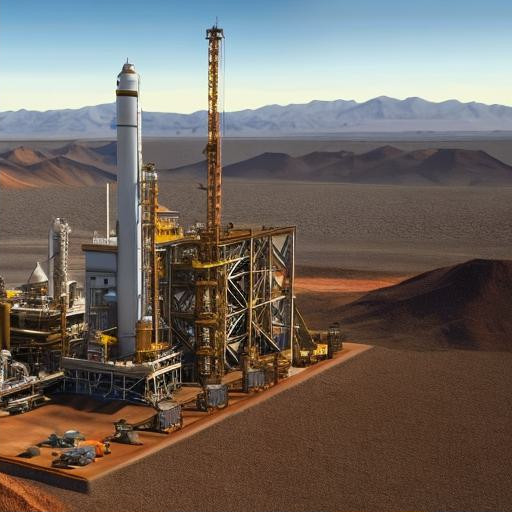
Are there any limits to these policies?
Commercial insurance policies typically have exclusions that specify what is not covered under the policy. It's important for corporations in the natural gas extraction industry to understand these exclusions so they can ensure that their insurance coverage is comprehensive and appropriate for their needs. Here are some examples of common exclusions in various types of commercial insurance for this industry:
General Liability Insurance
- Intentional acts or criminal acts committed by the corporation or employees
- Claims arising from the ownership, use, or operation of aircraft, auto, or watercraft
- Loss or damage to the policyholder's own property
Property Insurance
- Loss or damage caused by war, nuclear hazard, or government action
- Loss or damage caused by insects, vermin, or mysterious disappearance
- Loss or damage caused by flood or earthquake
Environmental Liability Insurance
- Loss or damage caused by gradual pollution or contamination
- Loss or damage caused by acts of war, nuclear hazard, or terrorism
- Loss or damage caused by prior pollution or contamination
Cyber Liability Insurance
- Loss or damage caused by acts of war, nuclear hazard, or terrorism
- Loss or damage caused by the loss of value or use of electronic data or software
- Loss or damage caused by the failure of hardware, software, or a system
Workers' Compensation Insurance
- Injuries or illnesses that occur outside of the workplace
- Injuries or illnesses caused by intoxication or illegal use of drugs
- Injuries or illnesses caused by intentional self-inflicted harm
Professional Liability Insurance
- Loss or damage arising from the performance of criminal or dishonest acts
- Loss or damage arising from the performance of illegal services or activities
Directors and Officers Liability Insurance:
- Exclusions may include intentional illegal acts, bodily injury or property damage, and personal profit without consent.
Product Liability Insurance:
- Exclusions may include defective products that are deliberately concealed, and damages caused by normal wear and tear.
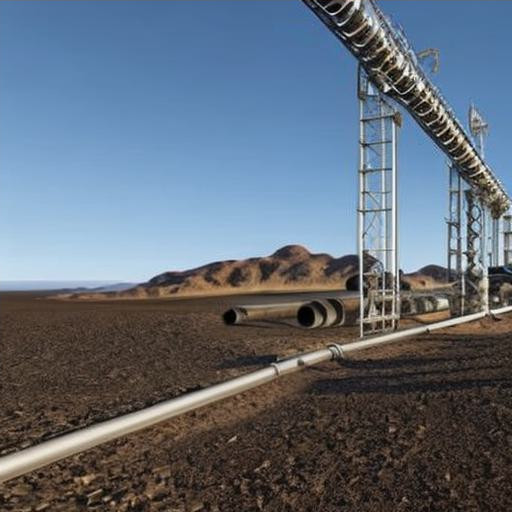
Regulations
The federal government regulates the natural gas extraction industry through a number of agencies, including the Environmental Protection Agency (EPA) and the Occupational Safety and Health Administration (OSHA). These agencies have established regulations to protect the environment, public health and safety, and the workers involved in the industry.
In addition to federal regulations, each state also has its own set of regulations for the natural gas extraction industry. These regulations can vary from state to state, but they generally cover issues such as air and water quality, drilling practices, and waste management. Some states also have specific insurance requirements for companies operating in the natural gas extraction industry.
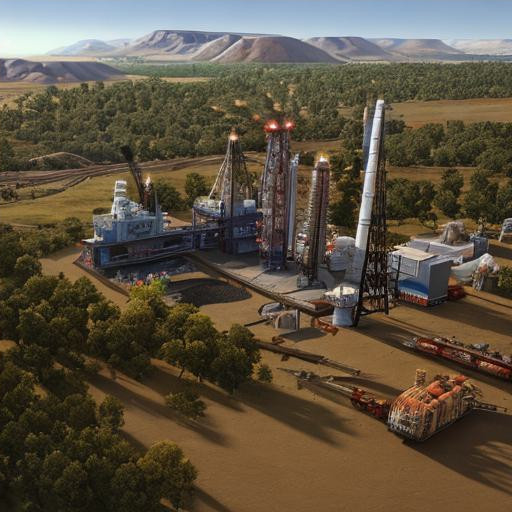
Is Insurance required?
Both federal and state regulations may require companies in the natural gas extraction industry to carry certain types of insurance. For example, companies may be required to have liability insurance to cover damages to the environment or third-party property. Workers' compensation insurance may also be required to cover on-the-job injuries to employees. Additionally, some states may require companies to have specific types of insurance coverage, such as pollution liability insurance, to address the potential environmental risks associated with natural gas extraction.
Some examples of low risk businesses in the natural gas extraction industry where purchasing insurance may not be necessary include:
- Consulting and advisory services for the industry, such as environmental consulting or regulatory compliance consulting
- Suppliers of equipment or services to the industry, such as manufacturers of drilling equipment or providers of transportation services
- Technology companies providing software or data services to support the industry, such as companies providing geospatial mapping or data analysis services
It is important to note that while these businesses may be considered low risk, they may still face certain liabilities and potential risks. It is always recommended to assess the specific risks associated with a business and determine if insurance is necessary to mitigate those risks.
Summary
The natural gas extraction industry involves a range of activities, from exploration and drilling to production and transportation. Due to the potential risks and liabilities associated with these activities, it is important for businesses operating in the industry to consider purchasing insurance coverage.
Some types of insurance that may be relevant for businesses in the natural gas extraction industry include General Liability Insurance, Property Insurance, Environmental Liability Insurance, Cyber Liability Insurance, Workers' Compensation Insurance, Professional Liability Insurance, Directors and Officers Liability Insurance, and Product Liability Insurance. These insurance policies can provide protection against various liabilities, such as property damage, bodily injury, environmental harm, and data breaches, among others.
Insurance requirements for businesses in this industry may also be influenced by federal and state regulations. Companies should be familiar with these regulations and ensure they are meeting the necessary insurance requirements. It is important to note that while some businesses in the industry may be considered low risk, it is always recommended to assess the specific risks associated with a business and determine if insurance is necessary to mitigate those risks.
Last Update: February 2023



 Environmental Liability Insurance
Environmental Liability Insurance
 Professional Liability Insurance
Professional Liability Insurance


